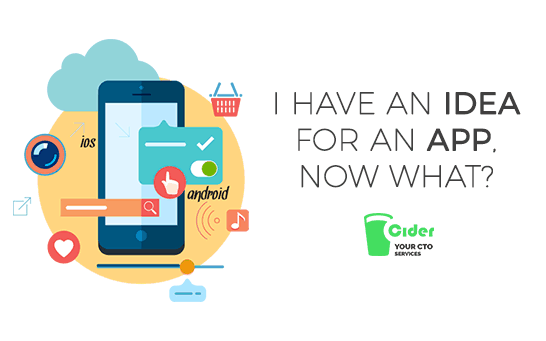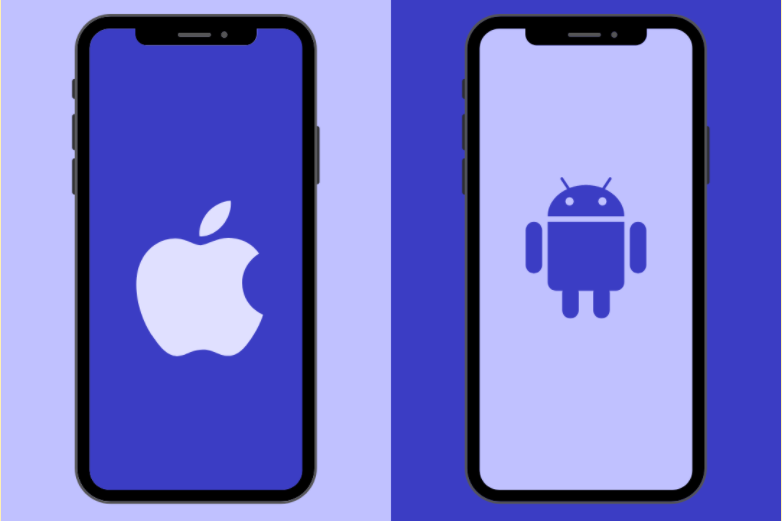There are a plethora of Startups that have begun to develop solutions driven by assumptions, without seemingly requiring any proof of value for the people on the market (i.e. their potential clients). The point to be extracted from this is that people usually underestimate the importance of undertaking marketing before launching. The phrase, “If I build it, they will come” doesn’t work, especially in an internet era where choice is abundant and global competition is fiercer than ever. The success of your product relies on much more than simply development. Unless you’re extremely lucky or well-connected, you cannot expect a product to succeed via word-of-mouth and reputation alone. If you do not allocate any budget to marketing, do not expect immediate traction. Organic leads are, of course, great, but achieving organic growth is very difficult nonetheless. There are hundreds of thousands of “failed” mobile apps on the App store, as well as websites and other software development products. Many people hear stories of apps and products that were successful due to luck and organic growth, and these rare occurrences produce an unrealistic “superstar effect” that deludes many small businesses and entrepreneurs into assuming they can achieve the same magnificent results based on a great idea alone. In reality, many people have great ideas worthy of merit, and the odds are very much against you.
MARKET RESEARCH
Acquire proof (before product development and even to-market strategy development) that people will pay for your service in a myriad of ways. Will they pay money for it? Moreover, will they pay you their time, attention and emotional attachment? The internet has plunged us into a kind of “attention economy” where you must be able to hold your potential customers’ attention in order to maintain their custom. Why? Because there are 100,000 other apps they could go and tap within seconds. Most startups develop products that are used by customers for free. The service thus exists, and has caught people’s’ attention, but the service’s value is not seemingly great enough that people are willing to pay for it with money. Market research at the ‘IDEA’ stage will, therefore, make further steps much easier as you try to ascertain what your potential consumers are willing to hand over their hard-earned cash for. Catching their attention is great, but it can only go so far economically if you don’t have a concrete plan in place.
PR and ADVERTISING
Look for media outlets that may be interested in what you are creating. Pre-pitch your interesting content to them, prior to launching your app, and be sure to put an embargo on it (date of release).
Create a lightweight website with videos and a “subscribe” form to collect emails and share it with your friends, for a start. This may help to generate some initial interest and ideas.
Next, create a Facebook group and invite people to it, allowing them to share their insights with the community.
Alternatively, create a targeted Facebook ad (only direct it to people you know will be interested – you can tailor your Facebook ads towards demographics with specific interests and “likes”) that links directly to the landing page of your product’s website. As a guideline, use $5 a day for your ad budget, this way, a few thousand people will see it every day on their Facebook timelines. Also, try to simultaneously gather emails. This way, when you launch you already have an email list, and can inform your interested future customers about any updates, news, or innovations in the pipeline.
MINIMUM VIABLE PRODUCT
Attract as many beta testers as you can during your pre-launch phase. These are usually friends, friends of friends, and family. Gather feedback from them, incorporating any recurring feedback into your MVP. After you make any relevant changes, communicate to them that this feedback has been incorporated and then ask for additional feedback in order to measure the success of your alterations. Do not add too many features to your app at the MVP stage, since it will be very difficult and confusing for users to test it thoroughly; try to keep your app relatively simple and streamlined as you acquire feedback on its core features and aesthetics. Beta testers can ultimately spot and critique things that may have gone over your developers’ heads, so to speak.
LAUNCH PHASE
Ask your beta testers to download the app and start using it normally. Incentivize them with in-app currency in order to encourage usage of the app. Make sure that you create social channels for your app and encourage conversations with your users. Online forums such as Facebook and Reddit can be brilliant places to foster discussions about your app between interested users.
POST-LAUNCH PROMOTION
Always remember that the first 2-3 weeks are key during any app launch. App stores are likely to push your app higher in the rankings in order to give it a boost amidst the well-established competition. During this phase, it is best to launch paid user acquisition and boost the already-organic boost by the app stores in the first 2 weeks. It is advisable to leave some space in your budget for this process.
CONCLUSION
There are ultimately many more things that should be done before, after and in between. Keeping your customers in mind and understanding their needs is incredibly important. You need to put yourself in their shoes, per se, and ask yourself (honestly) what you would want from such an app. You should also take your Marketing customers’ persona into account in order to establish effective advertising channels and methods of acquisition that relate to your potential demographics’ browsing habits and whatnot. Additionally, keep in mind that the “good old days” where you could reach a lot of users easily via mobile are gone, and these days it requires a lot of work on your part to get ahead. Also, during development, think about monetization… don’t just assume that you will simply integrate something in the future. It is essential to have a plan that will help you in cutting development costs in the future while keeping your customers happy. Trying to make money in unethical ways can easily alienate your user base and undermine your business plan going forward. That is something that no business wants to deal with.
Besides helping companies in building a successful mobile application, Cider can assist you in running promotion campaign before and after the launch. We have a marketing team, which is responsible for driving users via ASO, paid user acquisition, SMM and other activities, ensuring that your mobile app will create a big uproar.
Cider is a Software Development Company based in the heart of Silicon Valley. We combine business domain knowledge and technology expertise of more than 50 development studios spread around the world.
Besides helping companies in building a successful mobile application, Cider can assist you in running promotion campaign before and after the launch. We have a marketing team, which is responsible for driving users via ASO, paid user acquisition, SMM and other activities, ensuring that your mobile app will create a big uproar.
Reach out to us for a FREE Quote!






